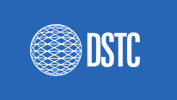Paradoxically, a consequence of the information explosion
is diminishing awareness; disciplines are becoming increasingly
specialized, individuals, groups, organizational units are becoming
ever more insular. Disparate islands of (community) knowledge
are being formed and evolving with little or no inter-connection
to other islands. Don Swanson's discovery of a cure for Raynaud's
disease with dietary fish oils by serendipitously bridging two
distinct islands of medical knowledge suggests that there may
be many islands of knowledge that can be bridged with beneficial
results.
The lack of awareness impinges on scientists' ability to produce
hypotheses seeded by knowledge outside of their own specialization.
Similarly, individuals, groups, and units within an organization
could benefit greatly from a broader awareness. The underlying
reason for lack of awareness ties back to the individual’s
bounded cognitive resources: time, information and computational
capacity.
Lack of awareness is closely related to a lack of introspection,
in other words, the individual does not know that (s)he knows
something in a given context. Lack of introspection in an enterprise
setting contributes to "organizational ignorance",
a consequence of which is, for example, work/tasks having to
be redone, or the collection of information that has already
been collected.
In summary, human beings have limited cognitive resources. They
handle scarce information because that is all the conscious individual
can handle. Consequently, their introspective abilities and awareness
are impaired. This project attempts to produce knowledge-based
technologies that promote awareness and introspection. In a nutshell,
this involves developing:
computational forms of socio-cognitive knowledge
representation called "semantic spaces"
techniques that mimic/support human reasoning in relation to
information
suitable models of context to condition the knowledge processing
systems
appropriate frameworks for evaluating the knowledge processing
systems
Details of two research initiatives are given below.
Social networks
Investigate the theory and application of knowledge in online
communities from a socio-cognitive perspective. Computational
models of the semantics of electronic communications provide
the basis of techniques which discover the explicit and tacit
knowledge in the communication between people. This allows networks
of people/information to be constructed based on semantic context.
In addition, tacit knowledge aids those inside the community,
and others outside, to have a better understanding of the community
in all its facets.
Information Inference
Research in developing computational devices which draw inferences
from textual information which correlate with human inference.
Computational models from cognitive science are used to represent
the meaning of word, or word compounds in a semantic space.
Inference is driven by computations within the space, for example,
a high degree of information flow between two words equates
with a strong inferential connection (either explicit or implicit).
One of the primary goals of this research is to mimic a form
of human reasoning called abduction. Abduction is a process
which can generate new knowledge via hypothesis formation. Automated
abduction will be applied to knowledge discovery in medical
literature and the composition of web services.
Contact Point:
Dr Peter Bruza
Phone +61 7 3365 4310
Email
bruza@dstc.edu.au
Staff:
Professor Peter Bruza DSTC UQ
Rob McArthur DSTC UQ
Dr Dawei Song DSTC UQ
Dr Richard Cole ITEE/DSTC UQ
Zeeniya Bari ITEE/DSTC UQ (PhD Student)
Associate Researchers:
Professor
Xiaofang Zhou (ITEE/UQ)
A/Prof.
Bob Colomb (ITEE/UQ)
Dr.
Xue Li (ITEE/UQ)
Dr.
Raymond Lau (Centre for Information Technology Innovation,
QUT)
Professor
Mark Girolami, University of Glasgow, UK.
Professor
Eduard Hoenkamp, University of Nijmegen, the Netherland
Professor
Kam-Fai Wong, The Chinese University of Hong Kong
Leif
Azzopardi, (University of Paisley, PhD student)
Helen Huang (ITEE/UQ, PhD student)
Xin Yan (ITEE/UQ, PhD student)
James Cole (ITEE/UQ, PhD student)

